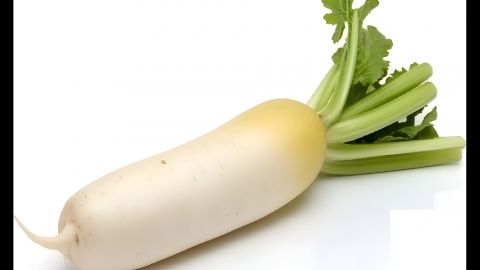Can I eat white radish after taking medication?
Generally speaking, whether one can eat white radish after taking medication should be determined based on the type and properties of the drug, and cannot be generalized. Detailed explanations are as follows:
White radish is cool in nature, with a pungent and sweet taste, and has the effects of aiding digestion, resolving phlegm, and breaking up qi. If one is taking tonic Chinese herbs such as ginseng or astragalus root, white radish may weaken their qi-enhancing effects, so concurrent consumption is not recommended.

However, for most Western medicines, white radish does not affect drug absorption or metabolism. When taking medications such as cold remedies or antibiotics, moderate consumption of white radish generally poses no significant contraindications. Because it is rich in vitamins and dietary fiber, it can also provide additional nutrition. Additionally, some herbal prescriptions that already contain ingredients for regulating qi and aiding digestion may not conflict with white radish's medicinal properties, and may even enhance the therapeutic effects.
To ensure medication safety and health, it is recommended that during drug therapy—especially long-term treatment—patients consult a physician or pharmacist for advice on potential interactions between specific medications and food, to avoid possible adverse reactions. Maintaining a balanced diet and avoiding excessive consumption of any particular food also contributes to maintaining good health.




